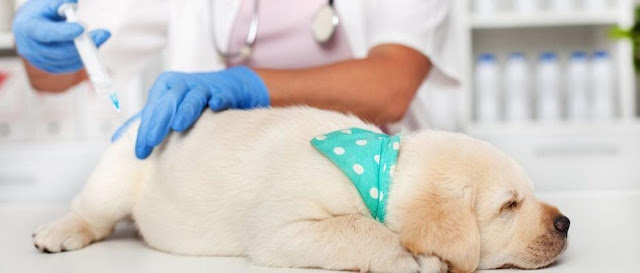Key Players, Technological Advancements, and Future Prospects of the Veterinary Vaccines Market
 |
| Veterinary Vaccines Market |
The veterinary vaccines market has witnessed significant advancements in recent years, driven by the development and introduction of next-generation vaccines. These innovative vaccines are revolutionizing animal health by offering enhanced protection against a wide range of infectious diseases. This report provides a comprehensive overview of the next-generation veterinary vaccines market, including market size, key players, technological advancements, and future prospects.
Market Size and
Growth
The
next-generation market has been experiencing substantial growth, driven by the
increasing demand for effective and safe vaccines to protect animals from
infectious diseases. According to Coherent Market Insights, Global
Veterinary Vaccines market is estimated to be valued at US$ 8,482.6 million in 2022 and is expected to exhibit
a CAGR of 6.2% during the forecast
period (2022-2030).2 Key
Players
Key Players
Several key
players are actively contributing to the revolution of animal health through
the development and commercialization of next-generation veterinary vaccines.
These companies include:
·
Zoetis Inc.
·
Merck Animal Health
·
Elanco Animal Health
·
Boehringer Ingelheim GmbH
·
VirbacTechnological Advancements
Technological
Advancements
Next-generation
veterinary vaccines are characterized by their innovative technologies and
improved efficacy. Some of the notable technological advancements in this
market include:
1.
Recombinant Vaccines: Recombinant DNA technology
allows the production of vaccines using genetically engineered organisms. This
enables the development of safer and more effective vaccines with enhanced
immunogenicity.
2.
DNA Vaccines: DNA-based vaccines have gained
prominence in veterinary medicine. These vaccines use plasmid DNA to elicit an
immune response, providing a promising approach for preventing various diseases
in animals.
3.
Vectored Vaccines: Vectored vaccines employ
harmless viruses or bacteria as vectors to deliver antigens to animals. This
technology enables targeted immune responses and longer-lasting immunity.
4.
Adjuvants: Next-generation vaccines often utilize
advanced adjuvants that enhance immune responses and improve vaccine
effectiveness. Adjuvants such as liposomes, nanoparticles, and toll-like
receptor agonists are being extensively studied and incorporated into vaccine
formulations.
Future Prospects
The future of the next-generation
veterinary vaccines market appears
promising, driven by ongoing research and development efforts. Key areas of
focus for market players and researchers include:
- Targeting Emerging Zoonotic Diseases: With the
increasing threats of emerging zoonotic diseases, there is a growing need
for vaccines that can prevent the transmission of diseases from animals to
humans. Next-generation vaccines offer the potential to address these
challenges effectively.
- Personalized Vaccines: Advancements in genomics and
molecular biology are paving the way for personalized veterinary vaccines.
Tailoring vaccines to individual animals' genetic makeup can optimize
immune responses and provide personalized disease prevention.
- Combination Vaccines: Combination vaccines that
offer protection against multiple diseases with a single shot are gaining
popularity. Developing next-generation combination vaccines can reduce the
number of vaccinations required and improve compliance.
- Delivery Systems: Developing innovative delivery systems that improve the convenience and effectiveness of vaccination is another area of interest. Technologies like oral vaccines, needle-free administration, and mucosal delivery systems are being explored.



Comments
Post a Comment